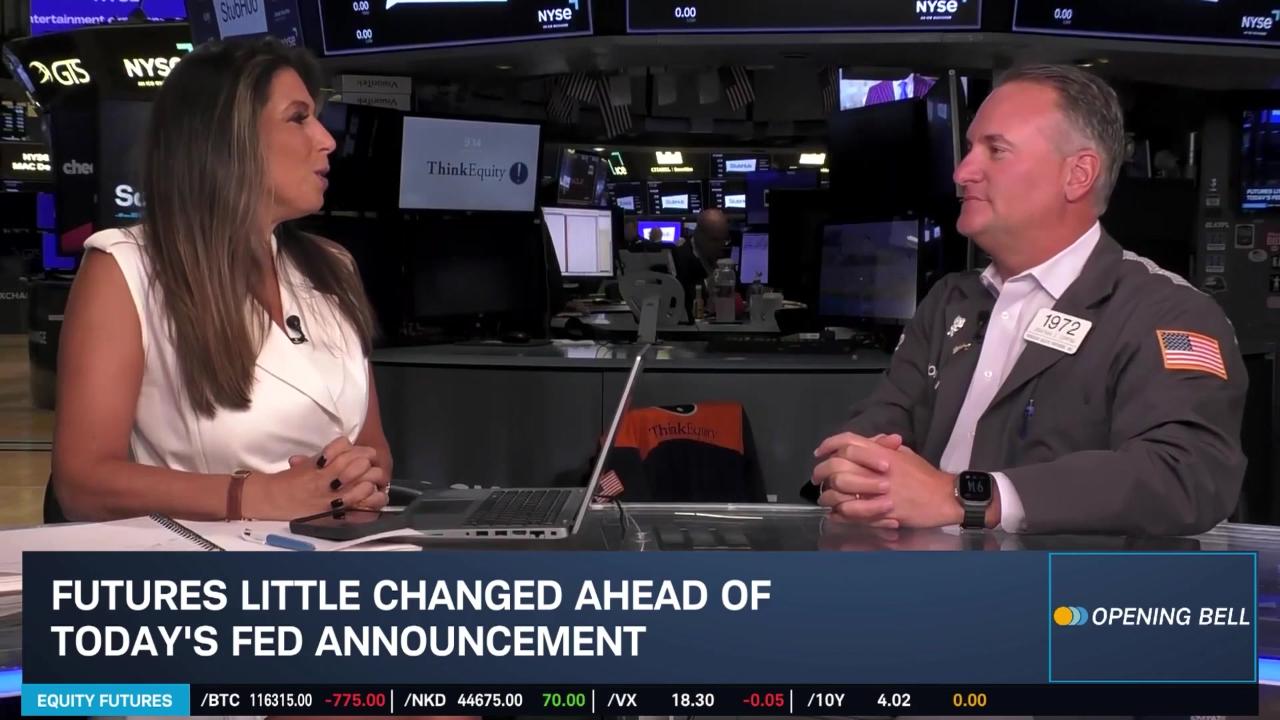- Market Minute
- Posts
- Nvidia (NVDA) Caught in U.S./China Push and Pull
Nvidia (NVDA) Caught in U.S./China Push and Pull

One of the U.S.’s bargaining chips in the trade war is getting pushed off the table: Nvidia’s (NVDA) advanced AI chips.
Earlier this week, China announced an initial probe found Nvidia (NVDA) violated their anticompetitive laws, citing its acquisition of Mellanox. Nvidia originally completed that deal for the networking firm back in 2020. Nvidia denies the findings, saying it has followed Chinese law and is cooperating with authorities.
Details around the complaint were light, and no punishment has been announced. China originally approved the Mellanox deal after Nvidia agreed to guarantee its supply of chips to China, among other conditions.
Of course, the U.S. has been putting export controls on certain types of advanced chips for the last several years. The Biden administration banned the most advanced AI chips, citing national security concerns, so Nvidia pivoted and made chips specifically for China. In trade war escalations and also citing national security, The Trump administration then banned those chips for some time.
However, as export controls have been loosened by the Trump administration, the U.S. is now taking a 15% revenue cut from those advanced chip sales to China. U.S. Commerce Secretary Howard Lutnick has also said that chips exports were a negotiating tool for access to China’s rare earth exports – creating a mutually dependent cycle, since chips can’t be made without them.
While the anticompetitive probe may have originally seemed to some like a move aimed at leverage for greater access, China seems determined to remove Nvidia as a player in negotiations altogether.
Several homegrown Chinese companies, including Huawei, Alibaba (BABA), and Baidu (BIDU), are working on their own advanced chips. A report from SemiAnalysis looks at Huawei’s latest chips and says that while they are a generation behind American companies like Nvidia and AMD (AMD), their “scale-up solution is arguably a generation ahead.”
Essentially, Huawei is getting around the need for singular chips with incredible compute power by linking together smaller chips. This strategy is reminiscent of China’s homegrown Deepseek AI, which used less advanced chips but built their architecture in a way that rivals U.S. companies with cutting-edge hardware.
The AI ecosystem in general seems to be slowing a bit, as investors turn to energy or cloud computing providers further down in the chain. While there are dozens of AI models in competition, none of them greatly outstrips the pack. Unlike when OpenAI’s ChatGPT first hit the market, improvements and refinements are turning gradual.
Not only is China pushing for homegrown solutions, it is cutting off domestic companies that still might be interested in Nvidia (NVDA) tech. Its biggest cybersecurity regulator urged companies not to buy several types of Nvidia chips this week, pushing shares down over 2.5% yesterday. The regulator cited fears around cybersecurity concerns, like backdoors allowing the U.S. access to their systems – a reason cited when the U.S. pushed Huawei out of its markets and pressured allies to do the same.
With that market closing, Nvidia doubled down on its U.S. commitments. Nvidia shares have regained yesterday’s losses this morning after the company said it will invest $5B in Intel (INTC) as part of a deal to co-develop multiple generations of custom data center and PC products that accelerate applications and workloads across hyperscale, enterprise and consumer markets. Nvidia is investing its stake at a price of $23.28 a share, according to a press release.
Just as China is strengthening trade relationships around the world in the wake of U.S. tariffs and is moving towards electrification and energy independence, it seems to be sending a signal that it doesn’t need the U.S. – the U.S. needs China. As negotiations drag on, the deepening trade war could have implications for tariffs as a “transitory” element of inflation.
Morning Minute
Featured Clip
Tune in live from 8 a.m. to 5 p.m. ET, or anytime, anywhere, on‑demand.
Or stream it via thinkorswim® and thinkorswim Mobile, available through our broker-dealer affiliate, Charles Schwab & Co., Inc
Please do not reply to this email. Replies are not delivered to Schwab Network. For inquiries or comments, please email [email protected].
See how your information is protected with our privacy statement.
Charles Schwab and all third parties mentioned are separate and unaffiliated, and are not responsible for one another's policies, services or opinions. Schwab Network is brought to you by Charles Schwab Media Productions Company (“CSMPC”). CSMPC is a wholly owned subsidiary of The Charles Schwab Corporation and is not a financial advisor, registered investment advisor, broker-dealer, or futures commission merchant.

